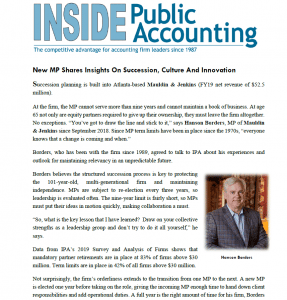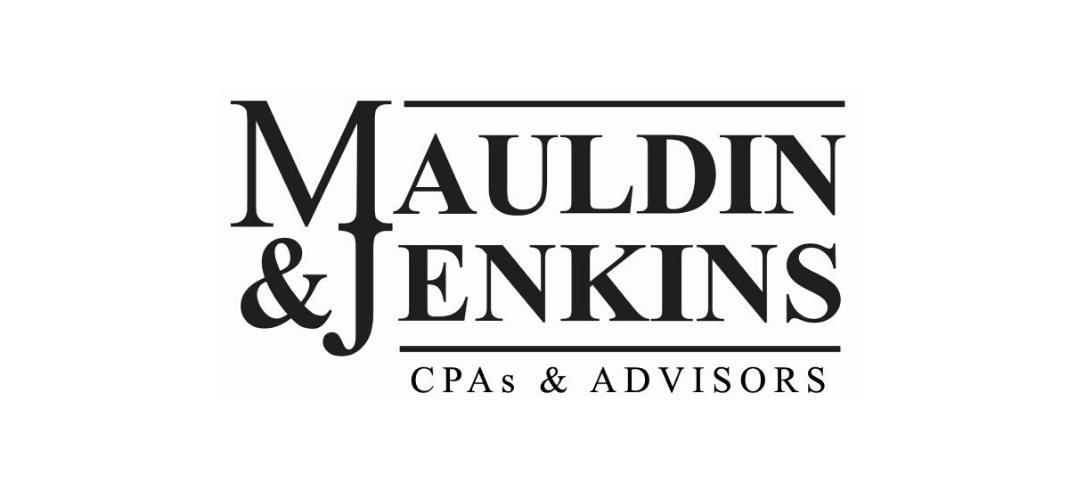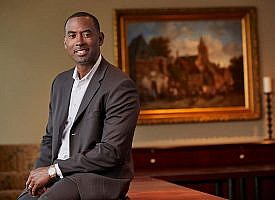Succession planning is built into Atlanta-based Mauldin & Jenkins (FY19 net revenue of $52.5 million).
At the firm, the MP cannot serve more than nine years and cannot maintain a book of business. At age 65 not only are equity partners required to give up their ownership, they must leave the firm altogether. No exceptions. “You’ve got to draw the line and stick to it,” says Hanson Borders, MP of Mauldin & Jenkins since September 2018. Since MP term limits have been in place since the 1970s, “everyone knows that a change is coming and when.”
Borders, who has been with the firm since 1989, agreed to talk to IPA about his experiences and outlook for maintaining relevancy in an unpredictable future.

Borders believes the structured succession process is key to protecting the 101-year-old, multi-generational firm and maintaining
independence. MPs are subject to re-election every three years, so leadership is evaluated often. The nine-year limit is fairly short, so MPs must put their ideas in motion quickly, making collaboration a must.
“So, what is the key lesson that I have learned? Draw on your collective strengths as a leadership group and don’t try to do it all yourself,” he says.
Data from IPA’s 2019 Survey and Analysis of Firms shows that mandatory partner retirements are in place at 83% of firms above $30 million. Term limits are in place in 42% of all firms above $30 million.
Not surprisingly, the firm’s orderliness extends to the transition from one MP to the next. A new MP is elected one year before taking on the role, giving the incoming MP enough time to hand down client responsibilities and add operational duties. A full year is the right amount of time for his firm, Borders says, to experience the entire annual cycle of roles and responsibilities an MP must fulfill. “I would strongly encourage this process to other firms.”
Additionally, the firm seeks ways to involve young professionals in the firm’s future, starting with an approach to new hires that encourages career-long employment at the firm. Opportunities are also being offered to this group through additional advisory services. Borders says the firm has the advantage of offering strong niches in governmental, non-profit, banking and financial services, and private company services including construction, manufacturing and distribution. While the firm has always blended advisory services into its niches, they will be managed in a more structured and focused way, Borders says.
Borders, with a little more than a year as MP under his belt, is focusing on innovating the firm and engaging all levels of personnel in the process. “Oftentimes our young people have the greatest ideas because of their connectivity to technology. They’ve already given us great ideas on efficiency.” From building bots to increasing the speed of internal financial reporting processes to making practical recommendations to minimize overnight travel, their input has been eye-opening, he says. The resulting recommendations not only include adding and improving client experience and services, but also elevating IT services and capabilities.
Finally, when all the firm activities come together, the hope is to grow 30% by 2022 through a mix of organic expansion, strategic hires and acquisitions, Borders says. In the last three years, the firm has acquired three firms to bolster practices in tax, private company services, financial institutions and governmental services. Borders says the plan is less focused on expanding the footprint than on adding services for existing clients. IPA
Copyright ©2019 The Platt Group, LLC. All Rights Reserved.




